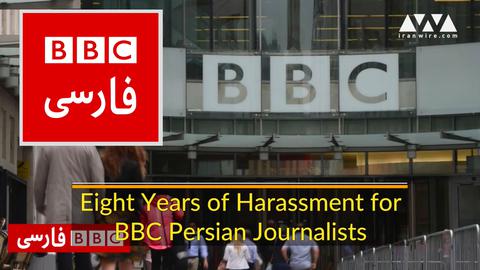“Single female secretary for office work needed. Must be presentable and well-spoken.”
This is just one of many similar ads for secretarial jobs on the Iranian website Divar. I call the phone number on one ad that was posted less than 24 hours ago and say I’m interested in the job.
“The age requirement is very important for our CEO,” the woman who answers tells me. “You must be younger than 35, presentable and unmarried. If you meet these requirements, then I’ll arrange an interview in person. But if you don’t, please do not waste our time. Yesterday someone came in and the CEO spent a good amount of time interviewing her, but in the end he learned that she was married.”
“Why can’t you apply if you are married?” I ask.
“Dear lady, this is what the CEO requires,” the woman answers brusquely. “We don’t hire married women. Now, should I make you an appointment or not?”
I talked to Maryam, a woman who applied for a job at a private company with similar requirements and got an interview. “It was a very strange environment,” she told me. “It was in an old building with a few chairs and desks. It was a private insurance company and none of the women there wore hijab. The CEO was a middle-aged man who insisted that the women who work for him be single.”
He told Maryam he simply found it easier to hire single women. “I have no patience working with people who one day come in late to work because their child has a fever and another day leave early for a party at their mother-in-law’s,” he told her. “Single women belong to themselves, but married women belong to their husbands and their families. Every day they find an excuse to get out of working.”
During the interview, Maryam said, the CEO had touched her a few times. “He put his hand on my back or over my hand,” she said. But she did not say anything to him. “With his age and everything, he somehow reminded me of my father,” she explained. “I was totally uncomfortable and all I wanted was to get out of there.”
Not a Priority!
The matter of sexual harassment in the workplace was recently addressed at an Iranian Health Ministry press conference [Persian link]. Speaking on October 17, Ahmad Hajebi, Director General for the Department for Mental and Social Health spoke to the press. “One of the issues we pursue is sexual harassment, but we have no reliable statistics about it,” he said. “When such incidents occur the case goes to judicial authorities and the Health Ministry [tries to] follow up.” But later, the Health Ministry issued a “correction,” claiming that Hajebi had been misquoted [Persian link]. According to the statement, Hajebi had said that “the subject of sexual harassment at the workplace is not at the moment a top priority” when it came to tackling “the mental health problems of the country.”
But whether Iran’s Health Ministry considers sexual harassment a priority or not, Iranian women have experienced it, and will continue to experience it.
Daily Harassment
Such ads and job specifications are what one Iranian psychiatrist describes as “perfect manifestations of discrimination — discrimination between the pretty and the not-pretty, between single women and married ones.” Speaking to IranWire, Dr. M. Mahmoudi — not her real name — added, “And such discrimination often leads to sexual harassment.”
The CEO’s behavior toward Maryam is a clear case of sexual harassment, and would be called out as such in most work environments in the United States and Europe, as well as many other countries around the world. “Any touching without mutual consent is a kind of sexual harassment,” she said. And in Iran, sexual harassment of women in the workplace is widespread, much more so than people might imagine. “Every woman employee has experienced sexual abuse at least once in the workplace,” she said, “but because of lack of awareness they do not recognize it as such.”
The psychiatrist said sexual harassment could be defined as touching, kissing and any kind of sexual relations. But it’s not limited to this. It also includes ogling, using inappropriate language and telling sexually suggestive stories and jokes.
A woman named Mahboubeh has worked for companies that organize international exhibitions for many years. She agreed with Dr. Mahmoudi. “If sexual harassment includes all these,” she said, “then every day we experience at least one of them.”
A few weeks ago, one of her managers kept sending Mahboubeh messages that contained stickers of a sexual nature. “Sometimes,” she said, “he would send a message asking about work-related issues and suddenly include a sticker with kissing lips.” She did not reply to the message and never mentioned it to him. “I do not want to lose my job,” she said. “If I mentioned it, trouble would follow and he would probably become insolent toward me.”
Since then she has refused to go to the manager’s office if he is there by himself. “I don’t want to be alone with him,” Mahboubeh said. “It makes me nervous and I get bad feelings, especially since his wife works with us and we see each other every day.” Why doesn’t she find another job, I asked her? “I have worked for different companies,” she said. “No matter where I work there is always somebody who gives me looks, says improper things or tells dirty jokes. Once the director of where I worked was explaining a project. I was standing next to him and whenever he wrote on the whiteboard he would press his hand on my chest and then move away.” She says she has changed jobs many times because of problems like this, but nothing ever improves. “Wherever I have worked, these things keep happening. So now when such things happen I wait at first and try to control the situation through the way I behave.”
Sahar, a journalist, has been reporting on cinema for years. She believes that journalists are more aware of their rights and of sexual harassment because they read and write about such issues extensively — but even they can fall victim to sexual harassment.
Sahar remembers well an interview that she had with Masoud Dehnamaki, a conservative filmmaker and a former journalist. “After he made Deportees 2 [a film produced in 2009] I went to Dehnamaki’s office in east Tehran to interview him,” she said. “I was a reporter with a reformist magazine. The interview was quite a challenge. Dehnamaki kept saying: ‘this is a movie that you reformists wish one of you had made. Now you are jealous because I am not one of you and my film is [a box office hit].’ I answered that [high] sales figures do not mean that it is a good movie.”
Sahar said that, for the interview, she was alone with Dehnamaki in his office. After hearing her reply to what he’d said, he turned off the tape recorder and got up from his chair. “He got too close to me,” Sahar said. “As he was talking I could feel his breath on my face. ‘Dear girl,’ he said. ‘Don’t be fooled by reformists. I can do whatever I want here and nothing would happen. But if [the reformist politician Mohammad Ali] Abtahi did the same thing in his office, he would be accused of assault.”
Sahar said she got up as fast as she could, gathered her stuff, put the tape recorder in her bag and said, “I must go!” Dehnamaki escorted her out with a big smile on his face. “Years have passed but I can never forget that interview and that face of his,” she said.
Dr. Mahmoudi says Dehnamaki’s behavior was a blatant example of sexual harassment and threat of rape. “In another country,” she said, “this would be grounds for taking the interviewee to court.”
“Young and Pretty Women Are More Energetic”
I call another number from the Divar website. I pick an ad that says the company is looking for a single, “presentable” woman between 25 to 35 to answer the CEO’s calls and schedule his meetings.
When the woman who answers the phone learns I am answering the ad for the secretary position, she arranges a phone interview with the CEO. I call two hours later and I am put through to him. He asks a few questions about my exact age, my marriage status and where I live. Then he asks whether I would be able to work late nights, until 10pm for instance, if required. I answer this and all his other questions. “We are a private company,” he tells me. “How our employees look is very important for us. Sometimes we have foreign guests so you must always be well dressed. Wearing a full headscarf or a long manteau is not required. You can dress however you feel comfortable.”
Why the age limitation and why the insistence on being single, I ask? “As I said,” he answers, “sometimes you have to work till 10pm. Well, this is difficult for a married woman to do. We are also looking for an energetic woman, and young and pretty women are always more energetic.” Pretty, I ask? He laughs and says “well, your voice is pretty. I guess your face must be pretty, too.”
I bid Mr. CEO goodbye.
visit the accountability section
In this section of Iran Wire, you can contact the officials and launch your campaign for various problems

























comments